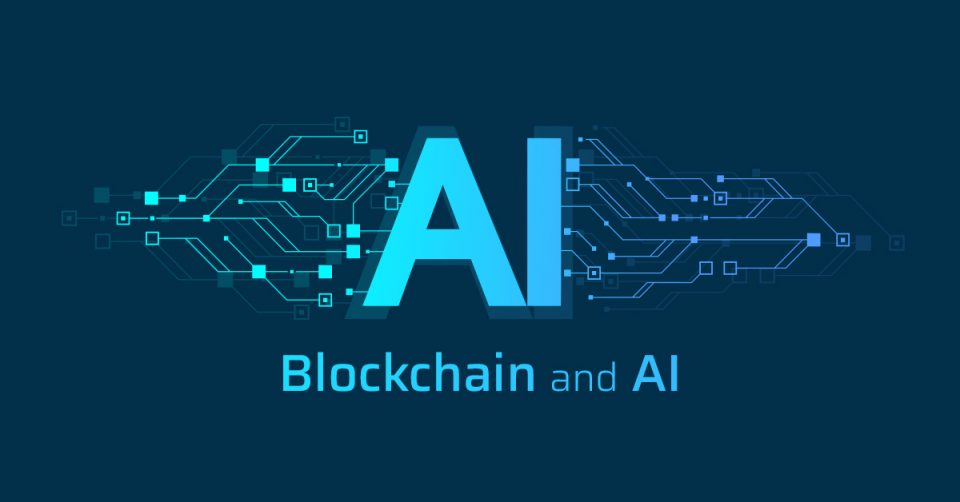Blockchain and Artificial Intelligence: A winning solution for businesses
The combination and integration of blockchain and Artificial Intelligence (AI) offer advantages that can transform how we manage data, information, and business processes, bringing new value to businesses regarding authenticity, traceability, empowerment, and automation.

Blockchain and AI: Innovation in service of business
Blockchain and AI represent an essential combination for modern businesses, offering security, transparency, and advanced data analysis. Ylium stands out as a professional solution that enables the seamless integration of blockchain with artificial intelligence quickly and efficiently, without complexity or operational disruptions. Thanks to its advanced architecture, Ylium facilitates the adoption of these technologies, allowing companies to optimise processes, reduce costs, and innovate with ease.
Authenticity
Blockchain provides an immutable digital ledger that offers transparency regarding the structure and origin of data used by AI. This aspect is crucial for enhancing trust in the integrity of the data and, consequently, in the decisions or recommendations generated by artificial intelligence. Using blockchain to store and distribute AI models allows for maintaining a precise audit trail, ensuring the information remains reliable and tamper-proof. The combination of Blockchain and AI helps strengthen data security, making the system more resistant to fraud and manipulation.

Empowerment
AI can read, understand, and correlate vast amounts of data in very short timeframes, bringing advanced intelligence to blockchain-based business networks. Blockchain, in turn, facilitates access to large volumes of data from both within and outside the organisation. This support enables AI to expand its capabilities, providing more profound and more valuable insights for business operations. Moreover, blockchain helps efficiently manage data usage and model sharing, creating a reliable and transparent data economy.

Automation
Combining AI, automation, and blockchain can generate new value for business processes involving multiple parties by eliminating complexity, speeding up operations, and improving overall efficiency. A concrete example is the integration of AI models into smart contracts executed on a blockchain. These models can automate various operations, such as identifying and removing expired products, executing transactions like reorders and payments, or purchasing inventory based on predefined thresholds and events. They can also resolve disputes and select the most sustainable shipping method, optimising the supply chain.
In summary, the combination of blockchain and AI not only enhances data security and reliability but also strengthens the ability of business networks to make informed decisions and automate complex processes, creating added value and fostering a more efficient and transparent environment.

Blockchain and AI: Use Cases
Supply Chain
End-to-end Traceability: Blockchain enables tracking every stage of a product’s lifecycle, from raw materials to the finished product. AI can analyse supply chain data to optimise logistics and reduce costs.
Benefits: Increased transparency, reduced fraud, improved product quality, and greater sustainability.
Inventory Management: Blockchain can be used to create a digital ledger of inventories, ensuring real-time data accuracy and updates. AI can predict demand and optimise stock management.
Benefits: Reduced inventory costs, improved operational efficiency, and prevention of stockouts.
Sustainability: Blockchain can track the origin of materials and ensure products meet sustainability standards. AI can analyse environmental data to identify areas for improvement.
Benefits: Improved environmental impact, enhanced brand reputation, and greater competitiveness.

Healthcare
Interoperable Electronic Health Records (EHRs): Blockchain ensures the integrity and security of health data, allowing safe sharing between different stakeholders. AI can analyse this data to identify patterns and trends, improving diagnoses and personalising treatments.
Benefits: Increased efficiency, improved quality of care, reduced medical errors, and enhanced patient privacy.
Drug Traceability: From production to administration, blockchain enables transparent tracking of a drug’s history, ensuring its authenticity and safety. AI can predict supply chain disruptions and optimise logistics.
Benefits: Reduction in counterfeit drugs, improved patient safety, and optimised inventory management.
Clinical Research: Blockchain can facilitate the secure sharing of clinical data across institutions, speeding up research and the development of new treatments. AI can analyse this data to identify new biomarkers and develop personalised therapies.
Benefits: Faster research, improved treatment efficacy, and reduced costs.
Health Insurance: Blockchain can be used to create smart insurance policies that automatically adapt to customer needs. AI can analyse patient data to assess risks and customise premiums.
Benefits: Greater transparency, reduced administrative costs, and improved customer experience.

Finance
Cross-Border Payments: Blockchain enables faster, more secure, and cost-effective global payments. AI can optimise payment routing and prevent fraud.
Benefits: Lower costs, increased transaction speed, and enhanced security.
Digital Assets: Blockchain can be used to create and manage digital assets, such as cryptocurrencies and tokens. AI can analyse financial markets to identify investment opportunities and manage risk.
Benefits: Greater liquidity, access to new markets, and more efficient portfolio management.
Smart Contracts: Smart contracts, powered by blockchain, automatically execute when specific conditions are met. AI can be used to create more sophisticated and personalised contracts.
Benefits: Reduced legal costs, faster contract execution, and increased transparency.
Anti-Money Laundering (AML): Blockchain helps track money flow and identify suspicious activities. AI can analyse large data sets to detect fraud patterns and report suspicious activities to authorities.
Benefits: Enhanced financial security and strengthened efforts against organised crime.

Public Administration
Electronic Voting: Blockchain can ensure the security and transparency of electronic voting, preventing fraud and manipulation.
Benefits: Increased voter participation and greater trust in the democratic system.
Digital Identity: Blockchain can be used to create secure and verifiable digital identities, simplifying access to public services.
Benefits: Reduced bureaucracy, increased efficiency, and improved security.
Public Records Management: Blockchain can be employed to create immutable and transparent public records, such as property ownership registries.
Benefits: Greater transparency, reduced corruption, and easier transactions.

Frequently Asked Questions
Want to learn more? Here, you can find some helpful answers. If you have any other questions, please get in touch with our team.
How can blockchain support Artificial Intelligence?
Blockchain ensures the integrity and traceability of data, while AI provides advanced analysis to reveal patterns and detect anomalies. By combining these technologies, blockchain can enhance the reliability of the data used by AI, and AI can leverage this secure and transparent data to generate more accurate and insightful analyses.
What benefits can my company gain from the combination of Blockchain and AI?
The combination of blockchain and artificial intelligence represents one of the most promising frontiers in technological innovation. Companies harnessing this synergy effectively can gain a significant competitive advantage and profoundly transform their business models.
Why is Blockchain secure?
Blockchain is secure due to its reliance on principles of cryptography, decentralisation, and consensus:
Cryptography: Data in a blockchain is encrypted, making it difficult for unauthorised parties to alter or access the information.
Decentralization: The blockchain is maintained by a network of nodes (computers) rather than a single centralised authority. This distribution makes it harder for malicious actors to tamper with the data.
Consensus Mechanisms: Transactions are validated through consensus protocols, such as proof of work or proof of stake, requiring multiple participants' agreement before changes are accepted. This ensures that only legitimate transactions are recorded.
These features work together to ensure the integrity and reliability of the data within the blockchain.
In which sectors is the combination of AI and Blockchain applicable?
AI and blockchain can be applied across various sectors where data, information, and business processes are managed. Currently, the main applications are in:
Supply Chain: For tracking and optimising the flow of goods and data.
Healthcare: To enhance data security, improve patient care, and streamline research.
Finance: For secure transactions, fraud prevention, and efficient management of digital assets.
Public Administration: To ensure transparency in voting, manage digital identities, and handle public records efficiently.
These technologies can enhance efficiency, security, and transparency in any industry dealing with complex data and processes.
Contact Us
To learn more about Ylium and how we can help you grow, fill out the form below and one of our experts will contact you.